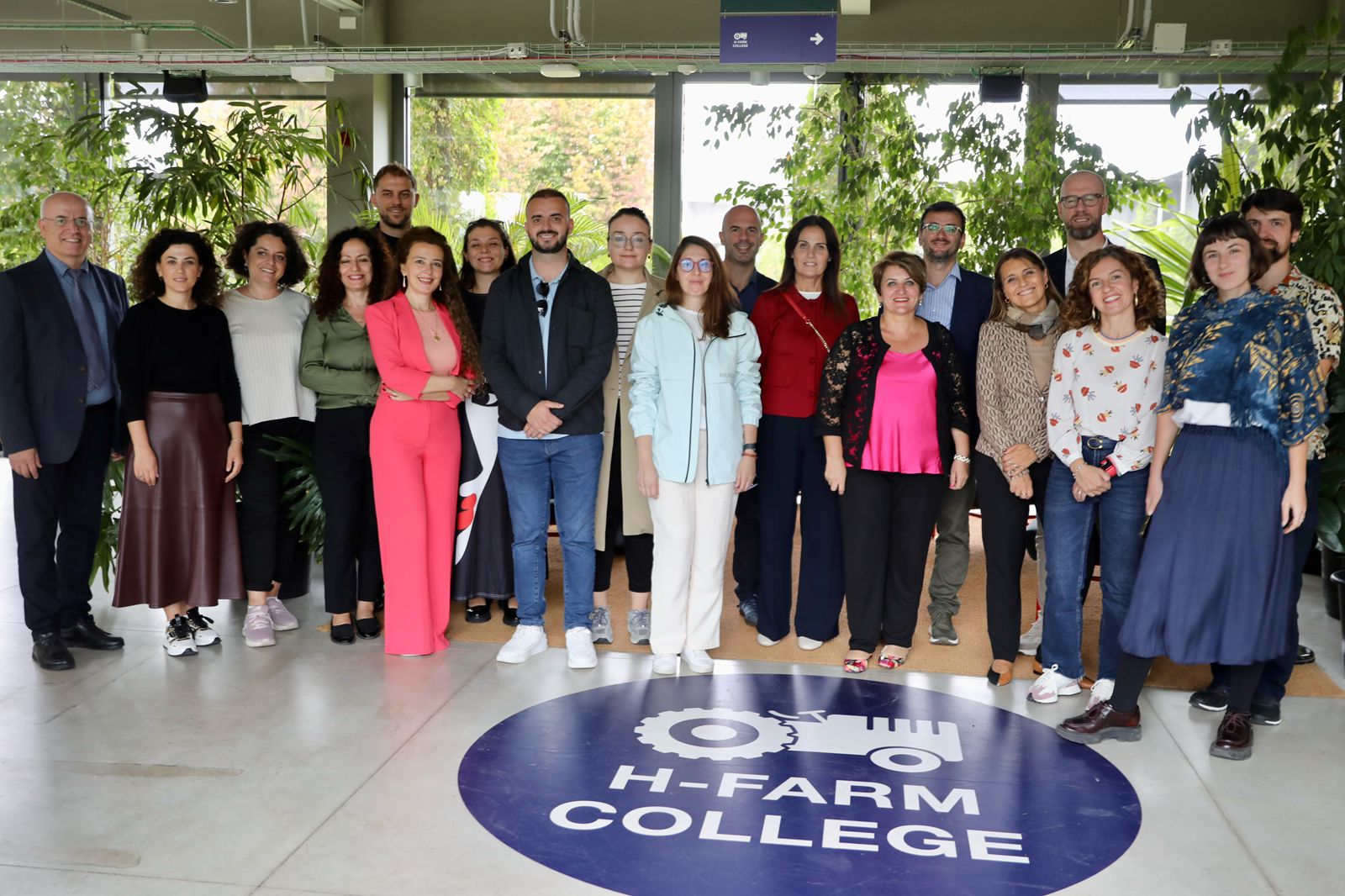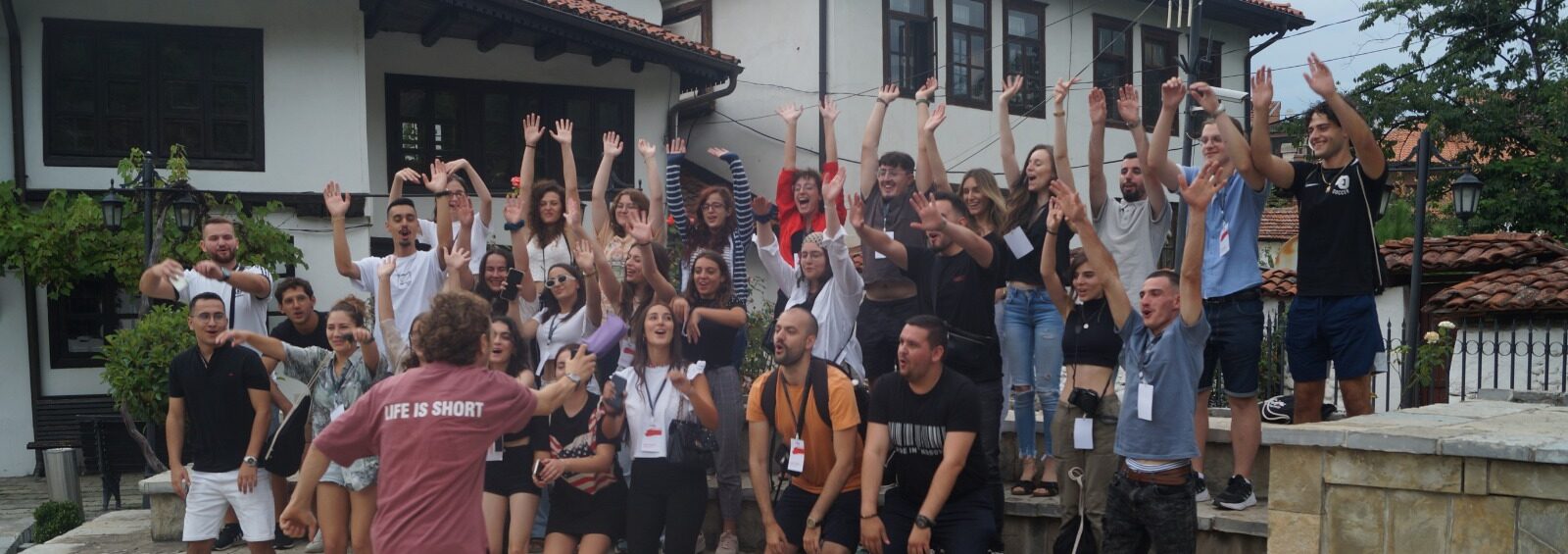Author: Xhevat Zogaj
The energy and potential of the diaspora should be utilized by Kosovo institutions to reform the country’s mental health sector.
We have built enough houses, roads, and schools. We have brought enough cars, and we have even organized enough weddings and promoted music of different genres.
Now, it is time that Kosovar diaspora and their home country cooperate even further. It is time to, first and foremost, share a love for work, knowledge, and valuable professional experience. Through this, we can set a good example in the social, economic and healthcare fields. Diaspora and the state of Kosovo need to be a helping hand for each other, because we have the capacity if we act in a coordinated manner to achieve general welfare in our country.
I never took the work of the Kosovo Ministry of Diaspora, or its agenda, very seriously . The vision of Germin to integrate the diaspora within its homeland piqued my curiosity because of the work they did organizing the “Diaspora Flet” conference. We as Kosovars who live outside of our home country were given the signal for cooperation and exchange to begin, and a prompt to offer professional experience for the development of the country.
The Ministry of Diaspora needs to channel the sources of this dispersed network of people who remain an uncoordinated value, yet are still closely connected to their country of origin and have a will to help it.
The contributions of the diaspora in Kosovo need to be carried out with our minds, hearts and hands: minds imply the exchange of professional and educational experience, hearts the love for our homeland, and hands the creation of working groups, cooperation networks in both the diaspora and Kosovo, as well as giving professional backup to our colleagues in the country of origin.
With my mind, heart and hands, I want to become part of working groups with my compatriots and share my educational knowledge and 12-year-long working experience in the field of mental health and forensic psychiatry specifically. All of these require institutional support.
Social healthcare – which includes social groups that deal with psychosocial issues, individuals with learning disabilities (as well as behavioral and psychiatric issues) – is an under-researched and non-systematized terrain in Kosovo. There is a lack of a genuine professional approach in the system of social healthcare, or even the public healthcare system.
Although personally disappointed, I am also motivated to offer professional help as a specialist in this field.
I wish to give my contribution in the process of building sustainable systems in the field of mental health. This includes introducing recent innovations, the implementation of working models of psychoeducation, psycho statistics, and clinical, multidisciplinary diagnosis and treatment of disorders. Contribution in the form of cooperative networks between colleagues in Kosovo and those in the countries where they operate will be invaluable to the field.
I see a dysfunction in the healthy conscience of the masses, but also within governing systems in the country. I have to say with regret that all of these problems in the field of mental health are undermined and not seen as factors that cause regress in the general development of the country.
The Ministry of Health and the Ministry of Labour and Social Welfare need to offer tools and opportunities to build platforms to professionalize the country’s human capacities (most of which are youth) and channel the potential of professionals from both ends, Kosovo and the diaspora.
Professionals from the diaspora, in cooperation with local colleagues, can be much more effective than foreign staff – because of their common roots. They have mutual moral and cultural values and they can better detect the needs, recognize the shortcomings and the advantages of the society in which they live or operate. They are, above all, connected by the love they have for their home country and the desire to see it do well in the future.
Sincerely said, Kosovo is dealing with varied and complex problems in the field of mental health. Specialist treatment within forensic and psychiatric centers, as well as departments that deal with mental health, need to be addressed.
Kosovo suffers from a lack of professional skill in the system of differentiating and classifying groups within psychopathology and sociopathology within the field of mental health.
My impression of colleagues in Kosovo is very positive. I have noticed that some of them have the adequate potential and the required theoretical and practical capacities, but there is a need for a working system. Systems thus far have been weak and dysfunctional, and social policies in this field still lack a logical and practical framework.
All of these problems can be overcome through closer cooperation and exchange of professional experience. A common approach will be more powerful and more effective for addressing problems in the field of mental health, with the mutual goal of helping these categories and groups that are in need. All of these would improve the general welfare of society in our country.
Another phenomenon regarding mental health is the lack of professional education. Kosovo has only recently introduced staff psychologists, sociologists and specialists in the field of mental health.
What makes this segment even more complex are taboos relating to culture, ethnicity, religion, moral complexity, social groups and the lack of knowledge of needs that certain social groups have.
Related ministries need to increase budget for this segment. It is the first indispensable step in order to help groups in need (for example, the Dutch Ministry of Social Welfare allocates the highest budget for mental health capacities).
There needs to be increased quality in ethical and professional supervision; problems relating to mental health need to be criticized and analyzed. There need to informative platforms in order to raise awareness of the staff and certain groups that are in need.
Professional groups need to show readiness to cooperate. They need to create favorable working methods, and be proactive in reforming this system.
Kosovo society as a whole, starting from the central level, needs to learn and apply self-reflection, individual activism and be vigilant when it comes to social processes and policies. It needs to form critical and constructive thought, discuss actions and above all be effective and neutral when it comes to ethical norms in the professional field.
Briefly said, there is a lot to be done about mental health in Kosovo. I, as a Kosovar from the diaspora, await the day that I will have to opportunity to work towards changing and advancing this segment – to help my country.
I do not know whether ministries and societies can wait, but those who are in need cannot, so it is inhumane to let them wait any longer
Kosovo needs help and we are ready to offer it. We can do it, together.
This article is part of a series of op-eds published on Prishtina Insight as part of a project called the Engagement of the Diaspora for Policy Development from NGO Germin. This article was produced with the support of the Democratic Society Promotion, DSP, a project financed by the Swiss Agency for Development and Cooperation, SDC, and the Danish Foreign Ministry, DANIDA, and managed by the Kosovo Civil Society Foundation, KCSF. The content of this article does not necessarily reflect the views of donors and implementers.
Xhevat Zogaj was born in Lladroc, Malisheve, Kosovo. For economic and security reasons, and because of the Yugoslav wars, he was forced to leave the country. He lived in the Netherlands for a few years where he received an education and worked as a social-psychiatric nurse, specifically for mental health and forensic psychiatry. In September 2017, he moved to Germany and continues to do the same job.



